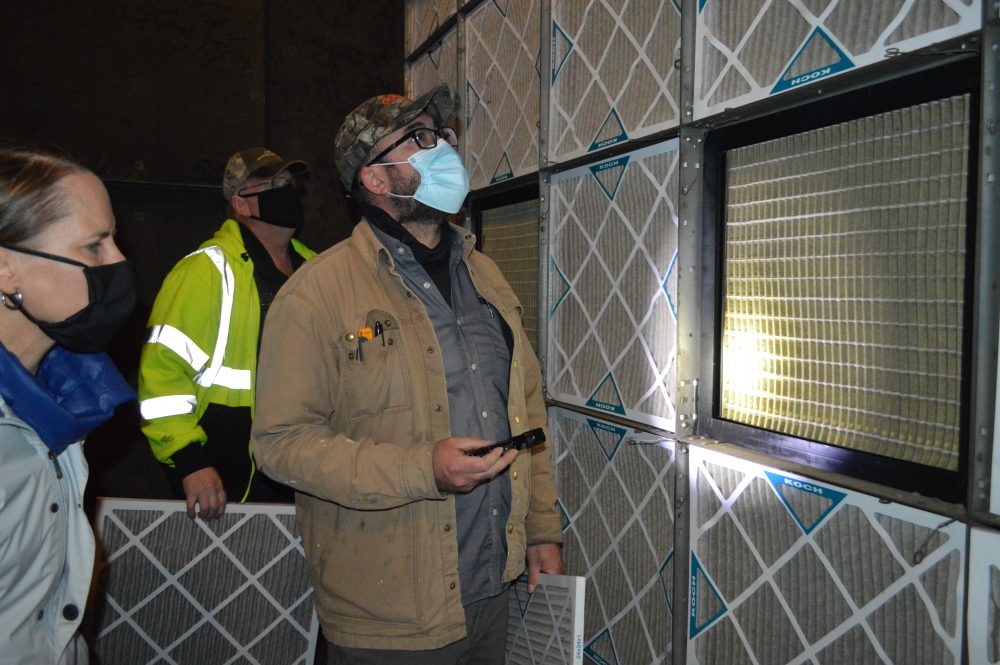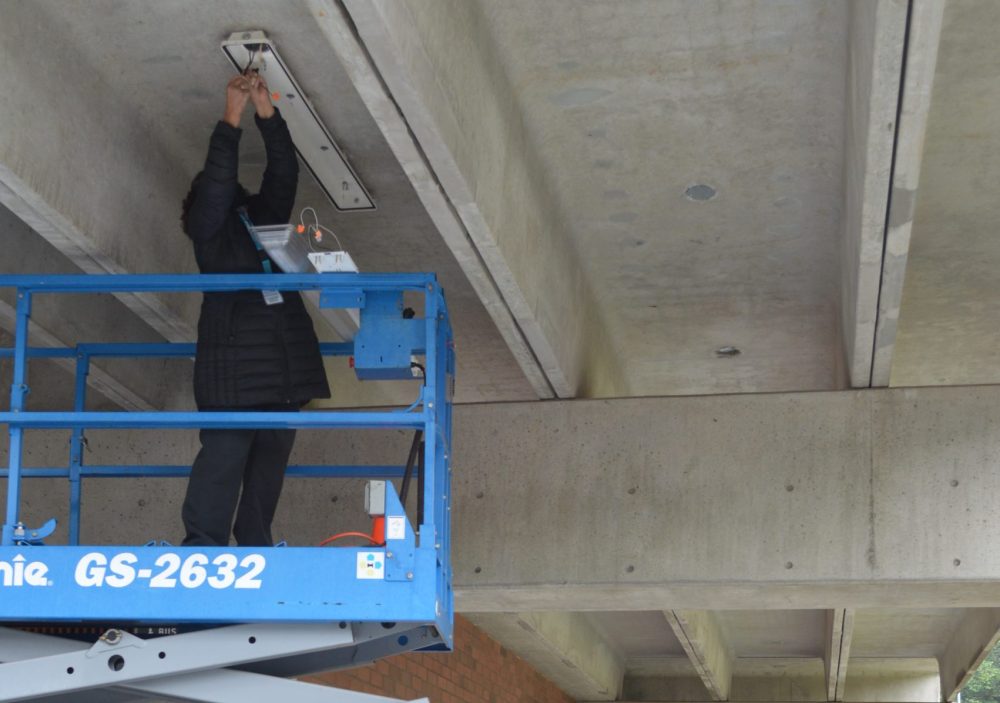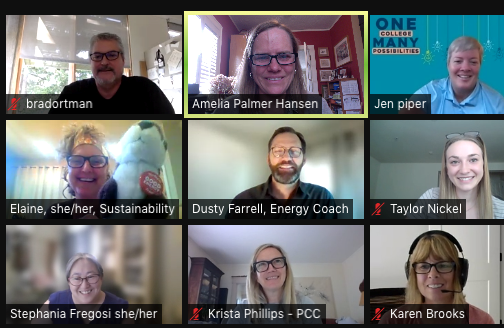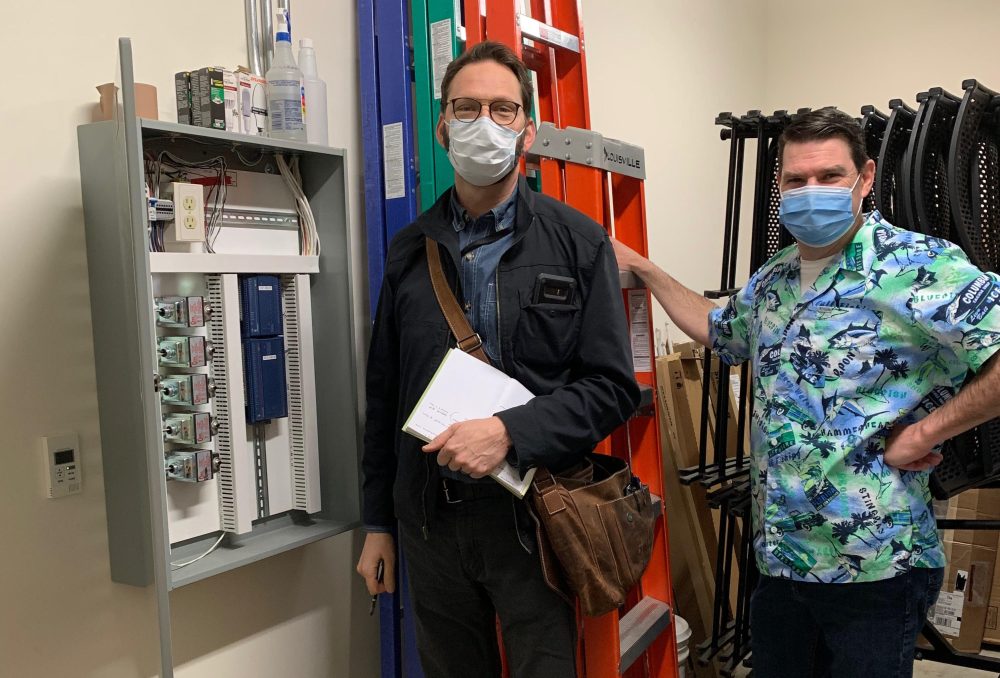Strategic Energy Management
Strategic Energy Management (SEM) focuses on continuous energy improvement by optimizing the performance of existing building systems and equipment, influencing employee and occupant behavior and investing in economically beneficial capital improvements. PCC receives financial incentives by participating in planning energy savings projects, engaging in operations calls with Energy Coaches, workshop participation, tracking projects and energy use and by demonstrating annual energy savings in our enrolled buildings. The program is supported though the Energy Trust of Oregon and financed through rate payers utility bills. A broad group of facilities and sustainability staff make up the SEM leadership team. In 2015, the team wrote an energy management commitment to demonstrate its dedication to this work and in 2022 this was updated to an Energy Conservation Procedures document.
Energy Projects
Mechanical Projects
- PCC is committed to expanding its on and offsite renewable energy.
- PCC is following standards for ventilation and air exchanges, put out by The American Society of Heating, Refrigerating and Air-Conditioning Engineers and Centers for Disease Control and Prevention, in all its buildings during COVID-19 to help students, staff and faculty stay safe.
- PCC has 23 buildings enrolled in the Energy Trust of Oregon’s Strategic Energy Management program as of 2021.
- PCC is converting to LED lighting and upgrading fixtures throughout the college.
- Rock Creek Campus Building 9 has calibrated sensors to assure accurate readings for Direct Digital Controls.
- Welding Shop Upgrade Renovation projected to save $42K in energy costs annually.
Operational Projects
- PCC is working towards certification in the US Department of Energy-50001 Ready Navigator program. It is a self-paced, no-cost way to create a culture of structured energy improvement that leads to sustained savings not requiring any external audits or certifications.
- PCC is dedicated to strategic scheduling for campus buildings to efficiently utilize rooms for courses, meetings and events to reduce energy consumption.
- PCC uses building energy management system and building management software to centralize building data and improve energy efficiency for reduced energy costs. Building OS turns the school’s electrical, water, gas and solar bills into data for actionable insights that save money, optimize energy and increase productivity.
- PCC was one of ~200 campuses in North America that participated in the first round of the Higher Education Benchmarking Initiative, which provides actionable insights on energy performance with free scorecards showing how their campus-level energy and water performance compares with peers.
- PCC’s addresses direct emissions from college-owned or controlled sources, including emissions from natural gas for heating, campus fleet fuel and stationary fuels in its updated Climate Action Plan 2021-2025. It also covers indirect emissions from the generation of purchased electricity, steam, heating and cooling consumed by PCC and ties to our SEM efforts.
Occupant Engagement Projects
- PCC periodically employs a Strategic Energy Management Associate, which is a professional internship supported through matching funds by the Energy Trust of Oregon. The SEM Associate is responsible for tracking items in PCC’s Annual Energy Plan, energy usage and incentives. Below are the final summary presentations of former SEM Associates:
- Amelia Palmer Hansen (2021)
- Farid Kayali (2020)
- Anna Brown (2019)
- Zachariah Strife (2017-2018)
- PCC participates in Project Power Down, a project that Sustainability and Information Technology collaborated on to monitor and track PC power usage and establish a nightly shutdown of computers by implementing Verismic Power Manager.
- PCC adopted a mandatory print management program called Panther Print in September 2018. This streamline service uses less resources by reducing labor and storage space for supplies, improves digital security, improves budgeting capabilities for departments, and ultimately, saves PCC money and energy. PCC staff participated in research to support these efforts and helped to author these resources:
- PCC has groups of staff, students and faculty working to improve sustainable practices at PCC as part of campus Green Teams.
- PCC promotes eco-friendly offices to reduce the college’s environmental footprint through a points-based rating system called the Green Office Program.
- PCC participates in a self-directed three week behavior change global competition held annually in October called EcoChallenge, where participants track and share their progress online to earn points for taking actions. PCC has been participating in the EcoChallenge for many years. Check out our EcoPanther Team’s efforts from 2021. Interested in joining our team, email sustainability@pcc.edu.
- PCC offers free energy efficient LED light bulbs for students provided by Energy Trust of Oregon, which are accessible through the four campus food pantries. LEDs use up to 85% less energy than standard bulbs, and each one can save about $80 over its lifetime.
Energy Savings Outreach
By committing to taking simple actions in our workplace we conserve energy, lower utility bills and provide a comfortable work space. Below are some education and outreach examples that PCC has used to help save energy in the workplace.
- PowerShift is an educational campaign targeted at faculty and staff to conserve energy in offices and buildings.
- Close Cooler Door Prompt (used in food service areas)
- Be Cool Pull the Shades Prompt (placed on or near windows)
- Energy Saving for Offices-Prompts & Signs
- PCC Pre-Break Green Checklist
- Light switch stickers
Email sustainability@pcc.edu to request Power Shift materials for placement around PCC.







